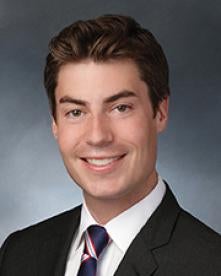Addressing whether the defense of patent exhaustion precluded a finding of infringement of a method claim, the U.S. Court of Appeals for the Federal Circuit affirmed that the patent rights for a method claim are exhausted by the sale of a machine that substantially embodies the method. Keurig, Inc. v. Sturm Foods, Inc., Case No. 13-1072 (Fed. Cir., Oct. 17, 2013) (Lourie, J.) (O’Malley, J., concurring).
Keurig brought suit against Sturm Foods alleging infringement of claims in two patents relating to a method for brewing a beverage from a disposable cartridge. Keurig asserted that Sturm was liable for contributory infringement because the use of Sturm’s replacement cartridges “in certain Keurig brewer models” directly infringed its claims. In response, Sturm asserted the affirmative defense of patent exhaustion and moved for summary judgment of non-infringement. The district court granted Sturm Foods’ summary judgment motion for non-infringement, finding that Keurig’s patent rights were exhausted by Keurig’s initial authorized sale of the patented brewer machine. Keurig appealed.
The Federal Circuit affirmed the district court’s ruling, reasoning that the authorized sale of Keurig’s brewers exhausted the method claims at issue because the brewers substantially embodied the method. Relying on Quanta (IP Update, Vol. 11, No. 6) and Univis (IP Update, Vol. 11, No. 6) the Court found that “Keurig sold its patented brewers without conditions and its purchasers therefore obtained the unfettered right to use them in any way they chose, at least as against a challenge from Keurig.”
The Federal Circuit noted Quanta and Univis “emphasized the unpatented nature of the products sold.” However, in this case, the product sold by Keurig was patented. Additionally, “Keurig did not assert its cartridge patent against Sturm and does not dispute that its rights in its brewers were exhausted with respect to the apparatus claims of the asserted patents.” Otherwise, the Court found, Keurig would be allowed to do an end-run around exhaustion by claiming methods as well as the apparatus to attempt shield the patented apparatus from exhaustion by holding downstream purchasers of its devices liable for infringement of the method claims.
The Federal Circuit agreed with the district court that a consumer’s potential use of different types of cartridges cannot save the method claims from exhaustion. Specifically, the Court rejected Keurig’s argument that patent exhaustion should be adjudicated on a claim-by-claim basis. Instead, the Court held that exhaustion jurisprudence focuses on the exhaustion of the patents at issue in their entirety, rather than on a claim-by-claim basis. Allowing exhaustion on a claim-by-claim basis, the Court found, would produce uncertainty regarding the rights of both third parties and end users.
Concurring with the majority in the judgment only, Judge O’Malley commented on the majority’s finding that “exhaustion should not be assessed on a claim-by-claim basis … [b]ecause patent claims are independent of each other, it stands to reason that the legal doctrine of patent exhaustion should apply on a claim-by-claim basis.” Therefore, O’Malley dissented “to the extent the majority purports to lay down a blanket rule affecting cases with facts that diverge widely from those we consider today.”
Keurig, Inc. v. Sturm Foods, Inc



 i
i


